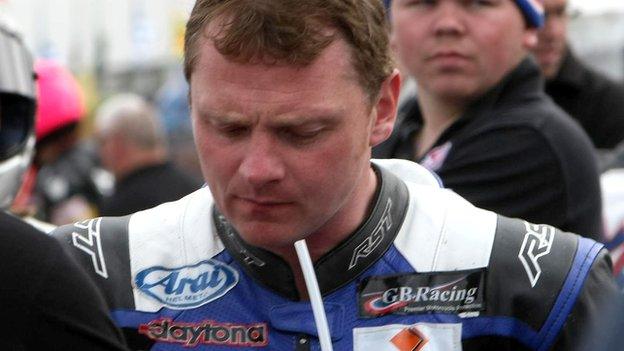Life after sport: AP McCoy, Martin Rogan and Aileen Reid on retirement
- Published
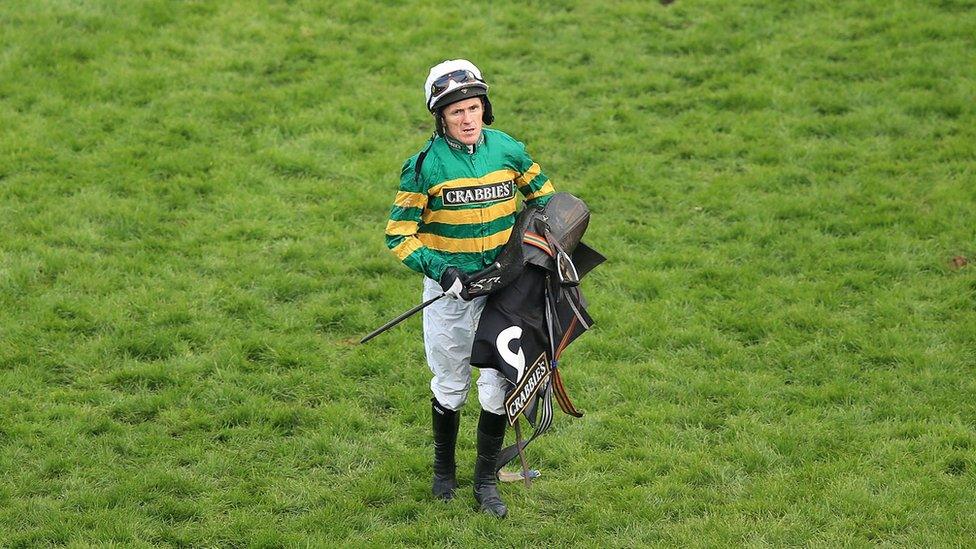
AP McCoy, the 20-times champion jump jockey, retired from the sport in 2015
Getting to the top in any sport requires skill, dedication and personal sacrifice.
But if sport is your life, what happens when you retire or are forced out due to injury?
After the Final Whistle, which will be broadcast on BBC Radio Ulster on Sunday, explores life after sport with former stars.
"A sportsperson is the only person who literally dies twice," said AP McCoy, who retired from his sport in 2015.
"You have a life and it stops and then you start again and have another life.
"So it's just about how you mange your second life really."
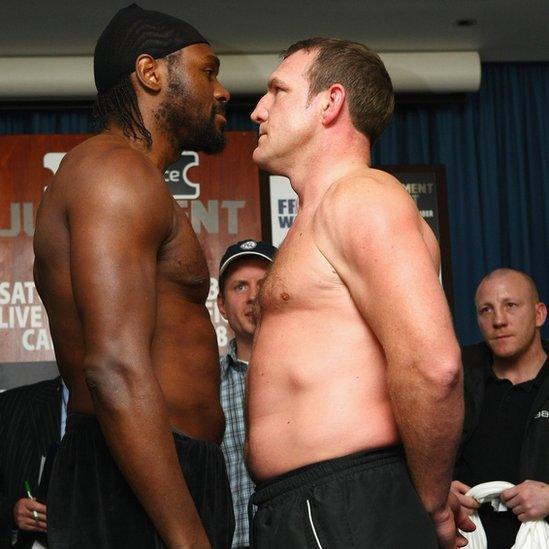
Martin Rogan faced big-name fighters including Audley Harrison during his boxing career
The former heavyweight boxer Martin Rogan is open about his mental health and how one of his darkest days was when he tried to take his own life.
He hopes his story will help other people seek help if they need it.
"It is probably just admitting defeat," he said.
"To try and think that you can bottle everything up and cover it over and not to speak about it and not deal with it.
"Is there any problem really that difficult?"
Rogan's answer to mental health problems now is to go and speak about it and he would encourage others to do the same.
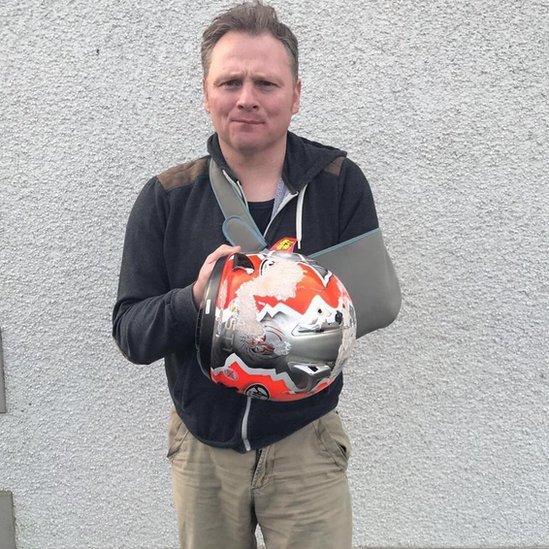
Stephen Thompson says small things have become big challenges since he lost an arm in a crash
Physical injury can be part and parcel of sport but former road racer Stephen Thompson suffered such a severe injury in a crash at the North West 200 that he was left with no option but to give up the sport he loves.
"I thought there is no way I was giving up and getting rid of my arm but then if I got an infection in my arm it could kill me," he said.
"So it was either get rid of my arm and see my daughter grow up or be selfish and keep my arm."
Now life is full of different challenges - even something as easy as buttering toast.
"You are chasing the bread halfway around the kitchen to get the butter on it, so it is the small things," said Stephen.
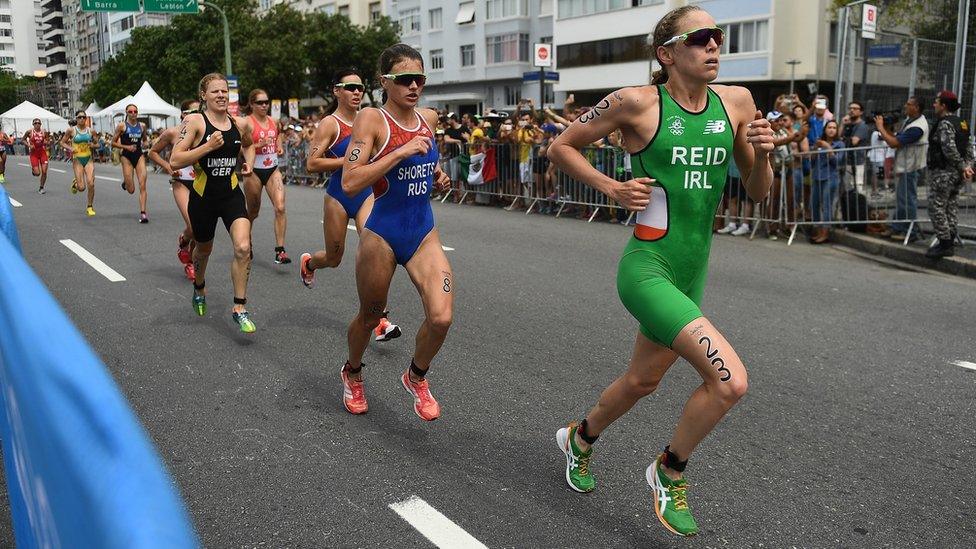
Aileen Reid, who competed at the Rio 2016 Olympics, wanted to start a family after her retirement
Triathlete Aileen Reid was ranked in the top 10 in the world for three years.
After retirement in 2017, she set herself a very different goal but found that starting a family was not as easy as she had hoped.
"When I retired and I started looking at having kids, my body was just not ready," she said.
"It is not something your body easily adapts to, going from quite a lot of training to: 'I want to have a baby.'
"So you wait for a while and you wait for another while and you go: 'OK, then we need to go and do something about this.'"
Reid and her husband David now have a little boy, who she says has helped her in retirement.
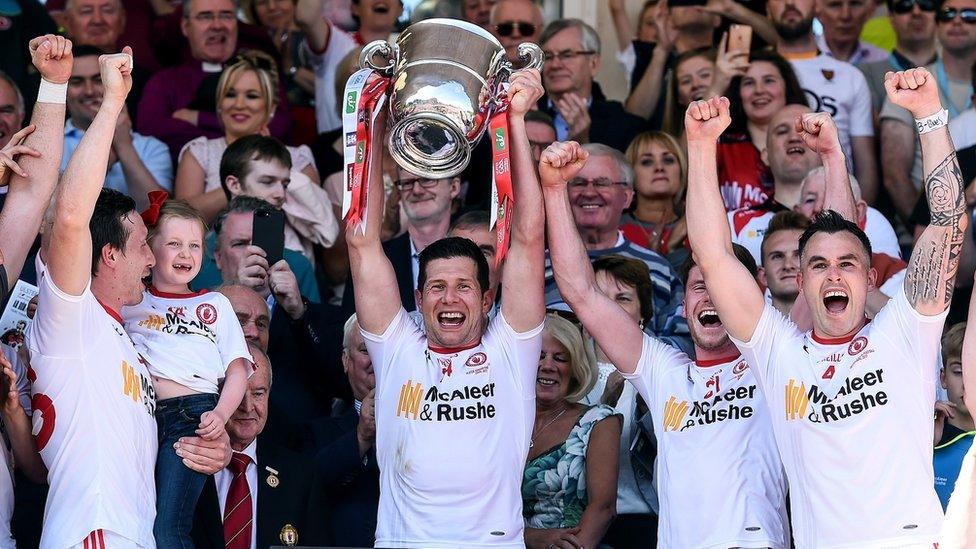
Former Tyrone captain Seán Cavanagh speaks in the After the Final Whistle documentary
Retiring from sport is all about preparation and you can never prepare too early, according to sports psychologist Dr Olivia Hurley.
Whether they are 12, 22 or 32, sports people "are only one hit, one bike ride or one crash away from sport being taken away", she said.
So what advice is there?
"To manage and to cope well with retirement you have to have something else that you constantly, even as an athlete, have in the background."
And the worst thing you can say to an athlete going through retirement is you know how they feel, because, as Dr Hurley says, nobody does.
"Everybody copes differently," she said.
"Everybody manages the situation differently."
After the Final Whistle is on BBC Radio Ulster on Sunday 27 January at 12:30 GMT.
- Attribution
- Published7 February 2015
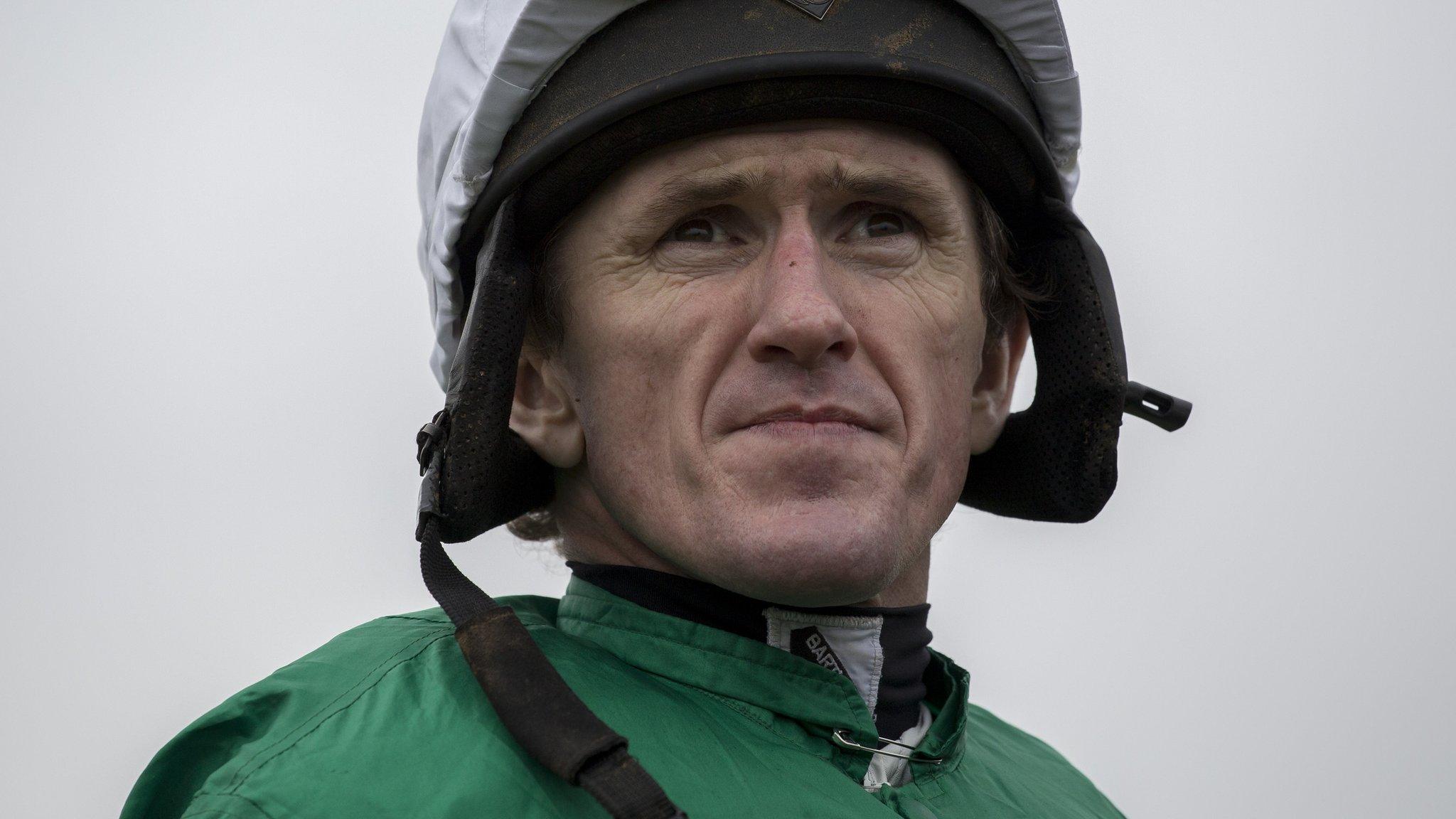
- Attribution
- Published25 July 2017
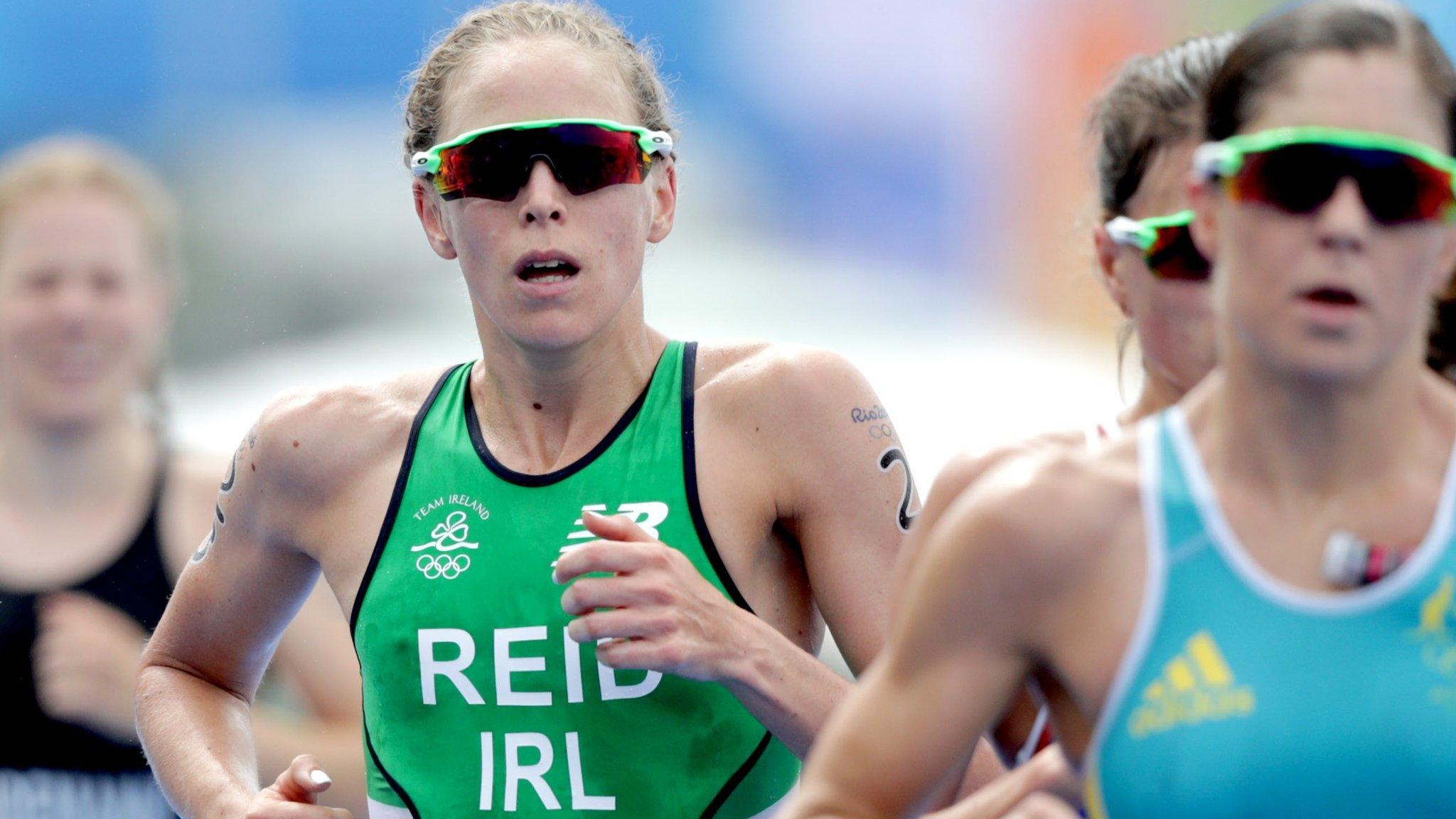
- Attribution
- Published23 July 2015
